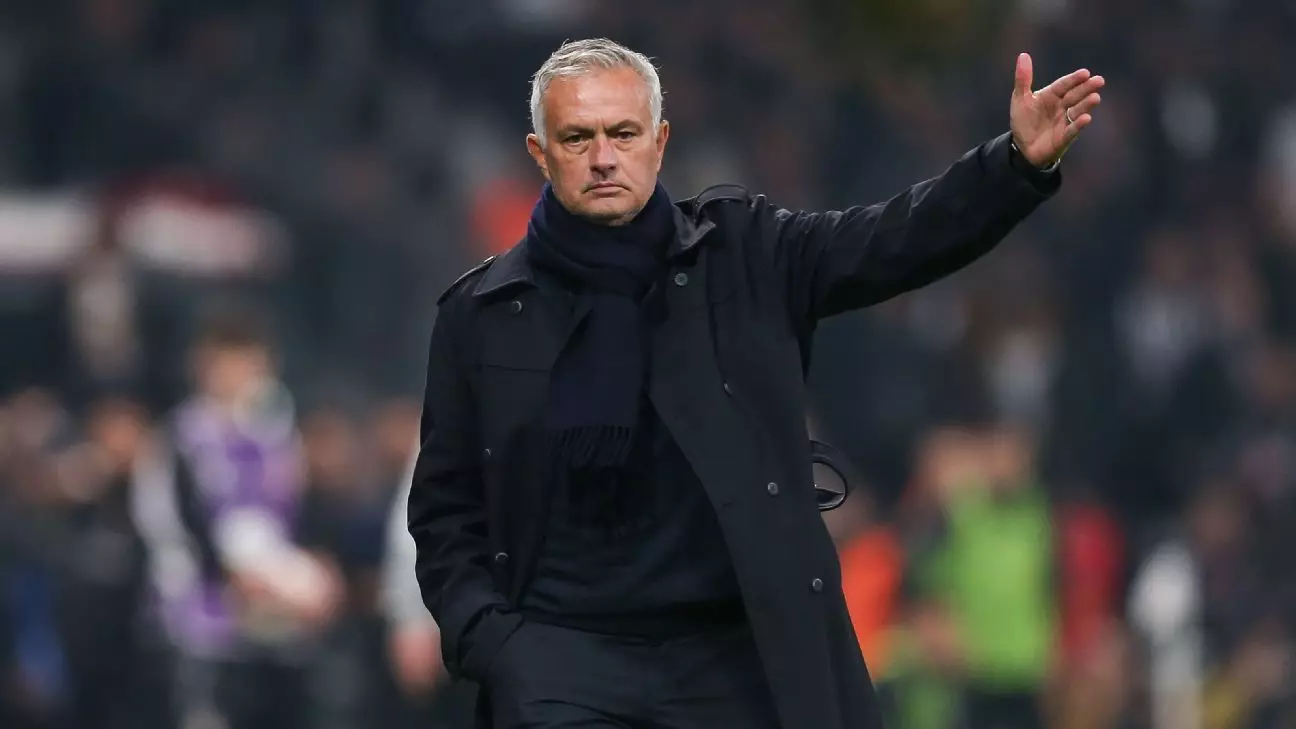The football world has always thrived on rivalries, none more so than the one between José Mourinho and Pep Guardiola. The animosity that brewed during their respective tenures at Real Madrid and Barcelona re-entered the spotlight recently, igniting discussions around the principles of fairness in football and the consequences for clubs that transgress financial regulations. Mourinho, currently at the helm of Fenerbahce, has been vocal about his desire for equitable treatment in football, particularly concerning financial fair play. His comments arose in response to Guardiola’s assertion that critics wish for Manchester City’s relegation.
Mourinho’s defense of Manchester City is surprising given his past criticisms of rival teams. However, his recent statements suggest a shift towards advocating for fairness rather than petty rivalry. He emphasizes a desire for “justice in football” rather than wishing harm upon City. Mourinho expressed frustration over smaller clubs facing stringent penalties for financial mismanagement while larger clubs seem to evade consequences. He shared his own experiences as a manager at AS Roma, where constraints stemming from financial regulations limited his options and negatively affected the competitiveness of the team.
The crux of Mourinho’s argument highlights a fundamental discrepancy within football’s economic landscape. It underscores how financial power dynamics can skew the playing field, allowing certain teams, particularly large clubs, to skirt around rules designed to ensure fairness. His passionate advocacy for justice reflects his longtime love for the sport and its integrity, rather than a personal vendetta against Guardiola or Manchester City.
While Guardiola chose not to address Mourinho directly when asked about the comments during his press conference, the tension between the two remains palpable. Guardiola’s defense cited a “huge list” of commentators wishing for City’s relegation, indicating an awareness of surrounding narratives and the competitive nature of managerial discourse. However, he too opted to sidestep direct confrontation, maintaining his focus on the upcoming Champions League clash against Juventus.
The dynamic of their relationship appears to oscillate between mutual respect and competitive rivalry. Despite the barbs exchanged through the media, Mourinho clarified that there are no lingering animosities between him and Guardiola, stating, “One thing are words and another thing is deep feelings.” This statement encapsulates the notion that professional clashes can coexist with a certain level of personal admiration.
Mourinho and Guardiola’s ongoing rivalry and its latest chapter highlight broader themes affecting football management today. With financial fair play under scrutiny, the conversation around equitable treatment persists. Mourinho’s critique of financial “sharks” raises essential questions about accountability and the need for reforms in how clubs are managed. His advocacy may resonate with fans and other stakeholders who believe that integrity should underpin competition. Not only does this impact how fans perceive managerial roles but also how younger managers may navigate the pressures associated with financial expectations in football.
Moreover, Guardiola’s commitment to remaining with Manchester City suggests an era of stability in his leadership, contrasting with the frequent managerial changes experienced elsewhere in the industry. His preference not to coach another club after his time at City hints at a potential shift in focus towards national teams or, perhaps, a future outside of day-to-day club management.
The ever-evolving rivalry between Mourinho and Guardiola serves as a microcosm of broader discussions within the footballing community about fairness, accountability, and the balance of power in sports. Both managers bring unique perspectives and passions to the discourse, which continually shapes the narrative surrounding modern football. As they navigate their positions in the league’s hierarchy, their exchanges will invariably reflect the ongoing challenges and transformations within the realm of professional football.


Leave a Reply